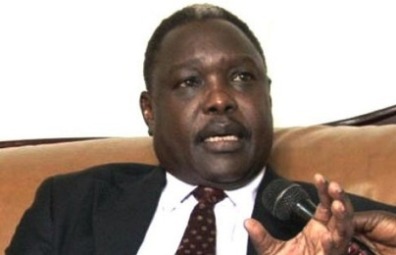S. Sudan proposes creation of third vice president’s position
May 22, 2018 (JUBA) – The South Sudanese government has proposed to the mediation team from the regional bloc (IGAD) that the position of the third vice president be created in an effort aimed at expanding the government size, instead of trimming it down.

“There is a significant progress. Through thematic committees, there have been significant in security sector and we are hoping there will be a significant progress in governance matters. As the government we made a new proposal in an effort to break stalemates. We now proposed a creation of a third vice president position to be filled by those in opposition,” Lomuro told Sudan Tribune on Tuesday.
He added, “We don’t know which group and who they will nominate”.
But while the cabinet affairs minister talked of some breakthrough, analysts and observers say major outstanding issues relating to governance and security arrangements remain to be resolved among the warring parties.
Key among the unsettled governance issues are the composition of the revitalized transitional government, structure of the revitalized transitional government, responsibility or power sharing in the revitalized transitional government, number of states and size and composition of the revitalized parliament.
The parties failed to reach a consensus on key areas such as the time-frame for reintegration of forces and approach to the formation of one national army, security during the transitional period, demilitarization of civilian centers, cantonment of forces, and security sector reform or establishment of new security arrangements.
Discussions focused on governance and security arrangements. While high-level agreement has been reached on the need for new security arrangements in the country, consensus on its implementation is yet to be reached.
A representative for South Sudan’s armed opposition movement, Angelina Teny, however, argued that without adequate transitional security arrangements, the country could witness more violence.
“You need to create a security sector that is subordinate to the civil authority. To us, that is paramount and this would give us a very good start to embark on nation-building,” she said.
However, despite slow progress in the talk over major stick points, citizens and the wider global are optimistic the ongoing peace negotiation remain the best path of ending the war and bring about long lasting peace, security and economic stability in South Sudan.
Meanwhile, the regional bloc was expected on Tuesday to present a proposed plan for compromise to all parties, all aimed at achieving lasting peace in the war-hit nation.
(ST)
